
Exciting new series on “Voice, Body and Movement for Lawyers – How to connect with the jury and find Justice Through Dramatic Technique!”
Click here to find out more
Lawyers are changing law firms at an ever-increasing rate. Regardless of why lawyers change firms, these departures often raise legal and ethical concerns, including questions about the old and new firms’ obligations to clients and to the respective firms. There are also financial issues, ranging from fee disputes to questions about compensation and benefits.
This program will address:
• General Legal Principles Every Lawyer Should Know
• General Ethical Considerations Every Lawyer Should Know
• What to Do During the Transition • What to Do After Departure
• What You Should and Shouldn’t Say and Do
• The Relevant Rules of Professional Conduct, including Rules 1.0, 1.4, 1.6, 1.7, 1.9, 1.10, 1.16, 1.18
• Applicable Ethical Guidance Opinions
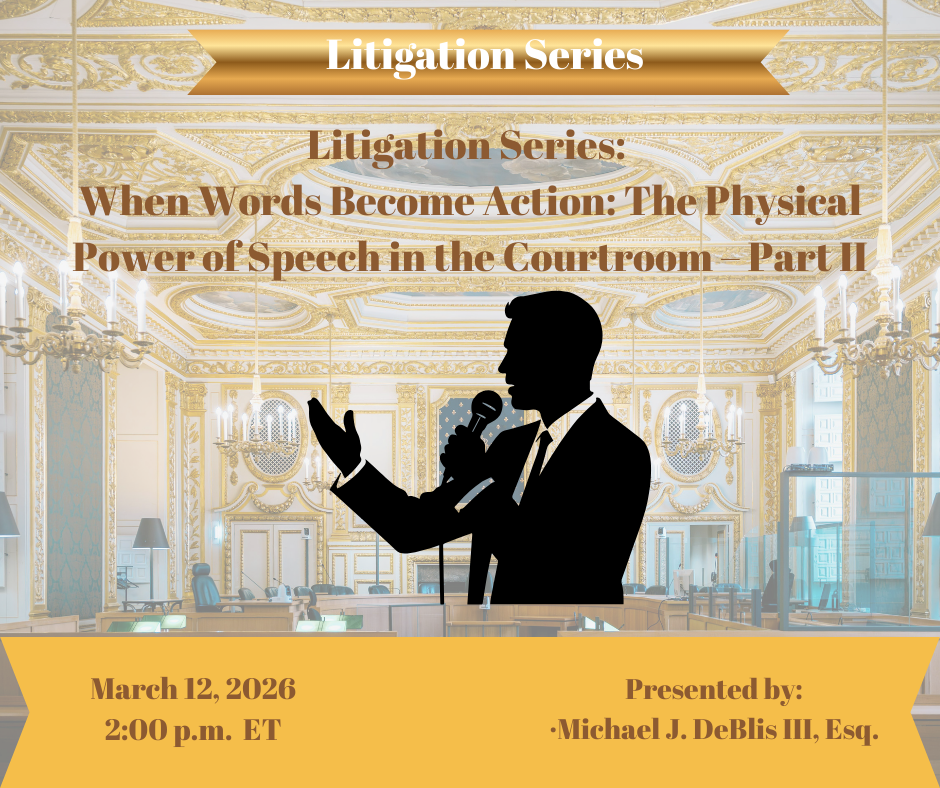
Part II builds on the foundation established in Part I by examining how classical rhetorical styles ...
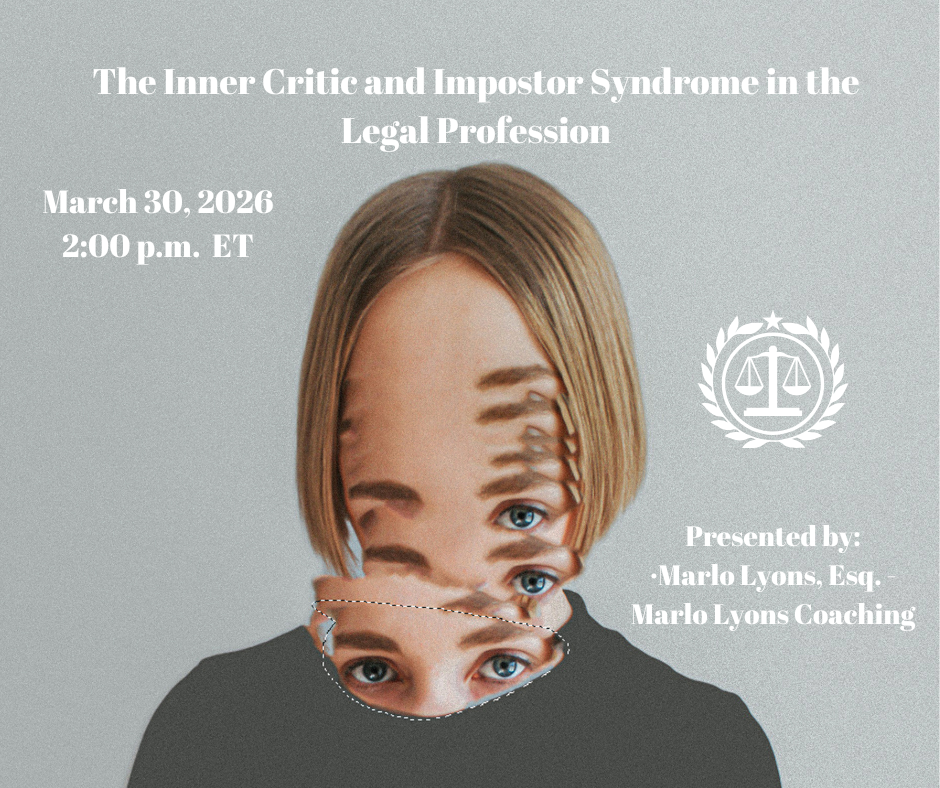
In high-stakes, high-pressure environments like the legal field, even the most accomplished professi...

This program provides a detailed examination of the Black Market Peso Exchange (BMPE), one of the mo...
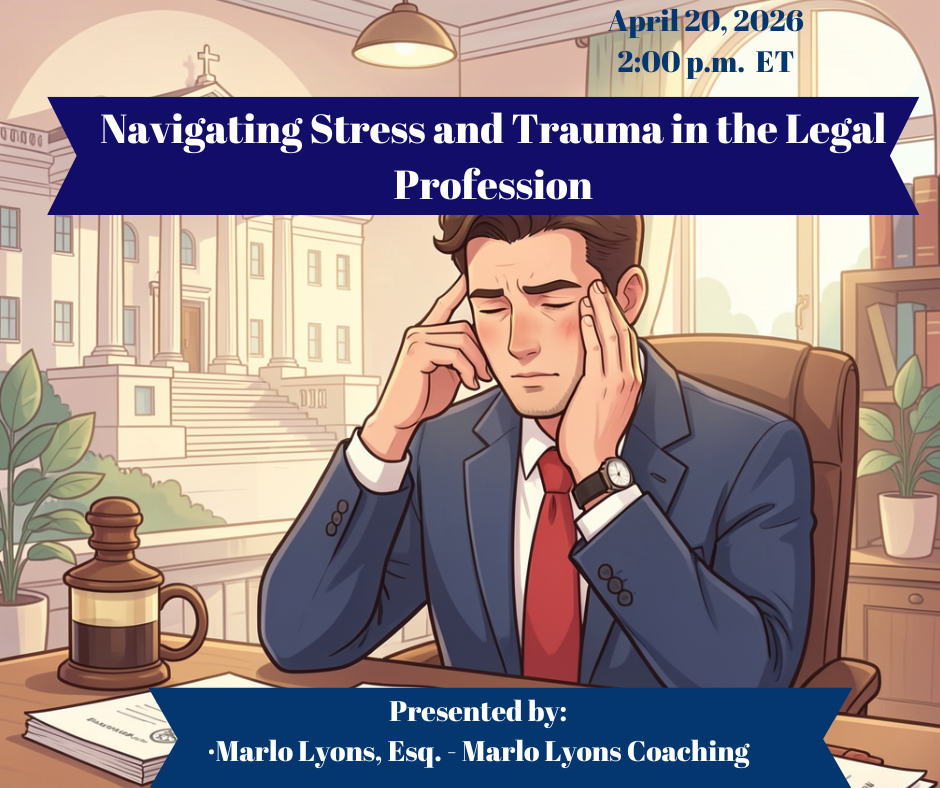
Navigating Stress and Trauma in the Legal Profession, explores the unique challenges faced by legal ...

This attorney-focused program reviews upcoming Nacha rule changes for 2026 with emphasis on legal ob...

This program focuses on overcoming the inner critic—the perfectionist, self?doubting voice tha...
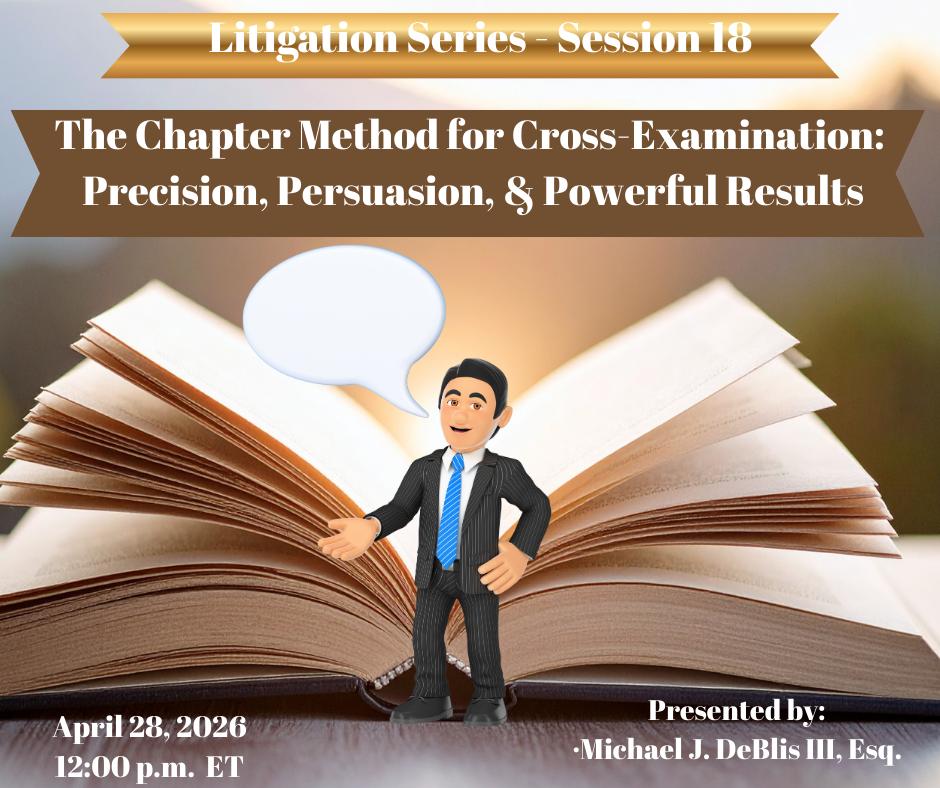
The “Chaptering Your Cross” program explains how dividing a cross?examination into clear...
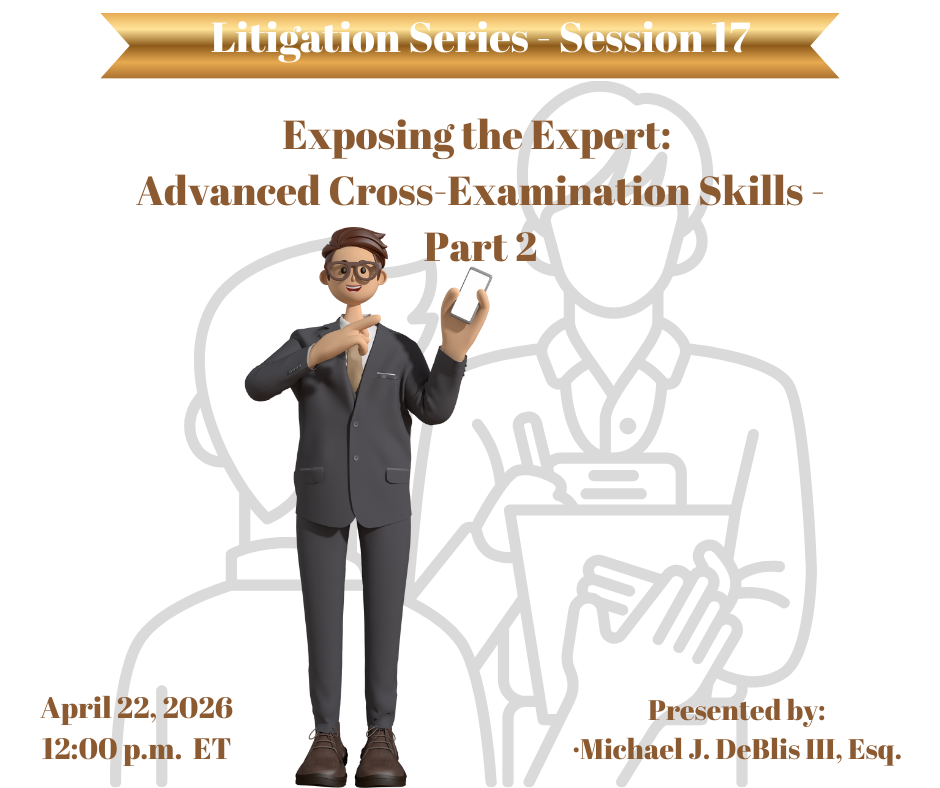
Part 2 - This program will continue the discussion from Part 1 focusing specifically on cross?examin...

Effective data privacy and artificial intelligence governance programs do not happen by accident. Th...

As artificial intelligence becomes the engine of the global economy, the value of "AI-ready" data ha...